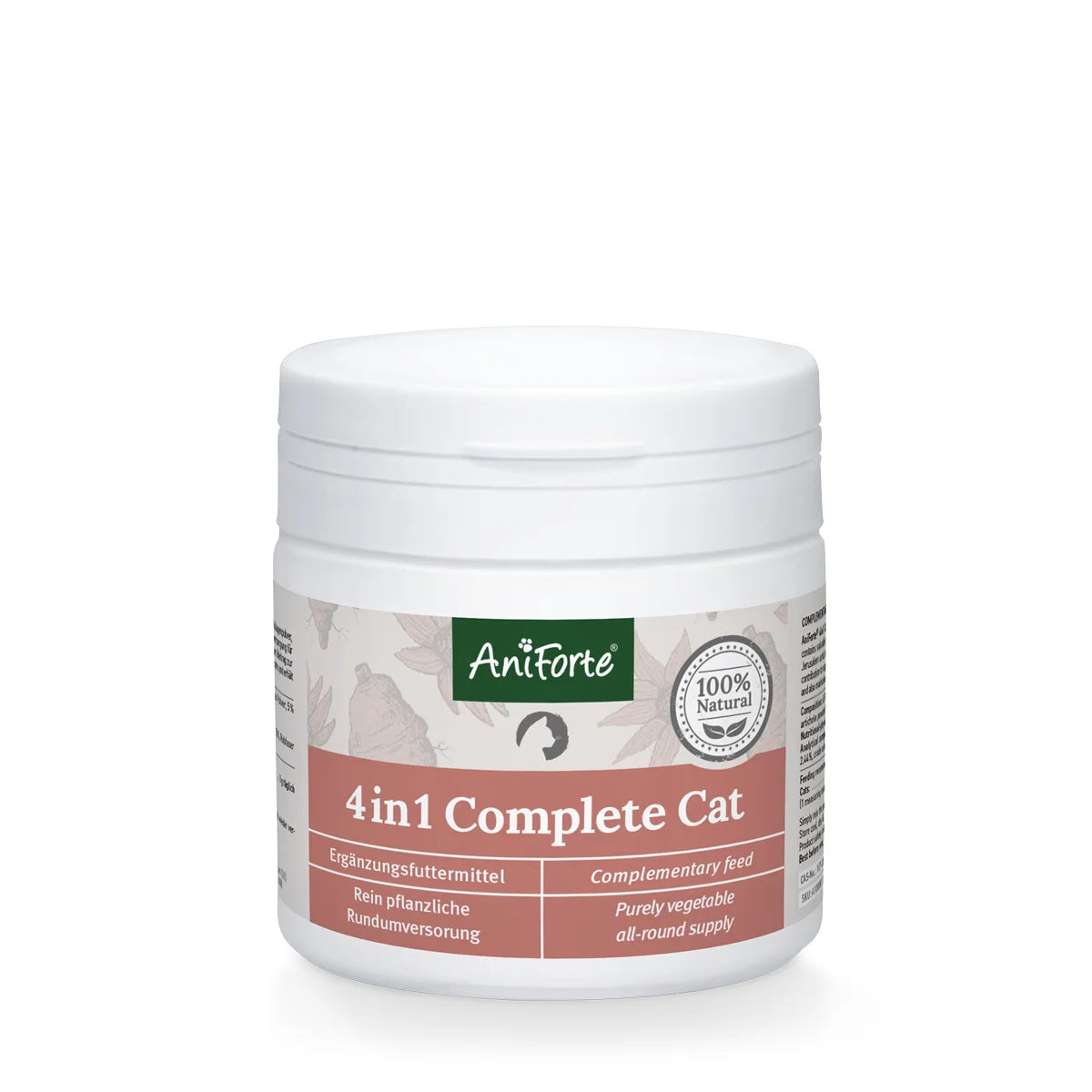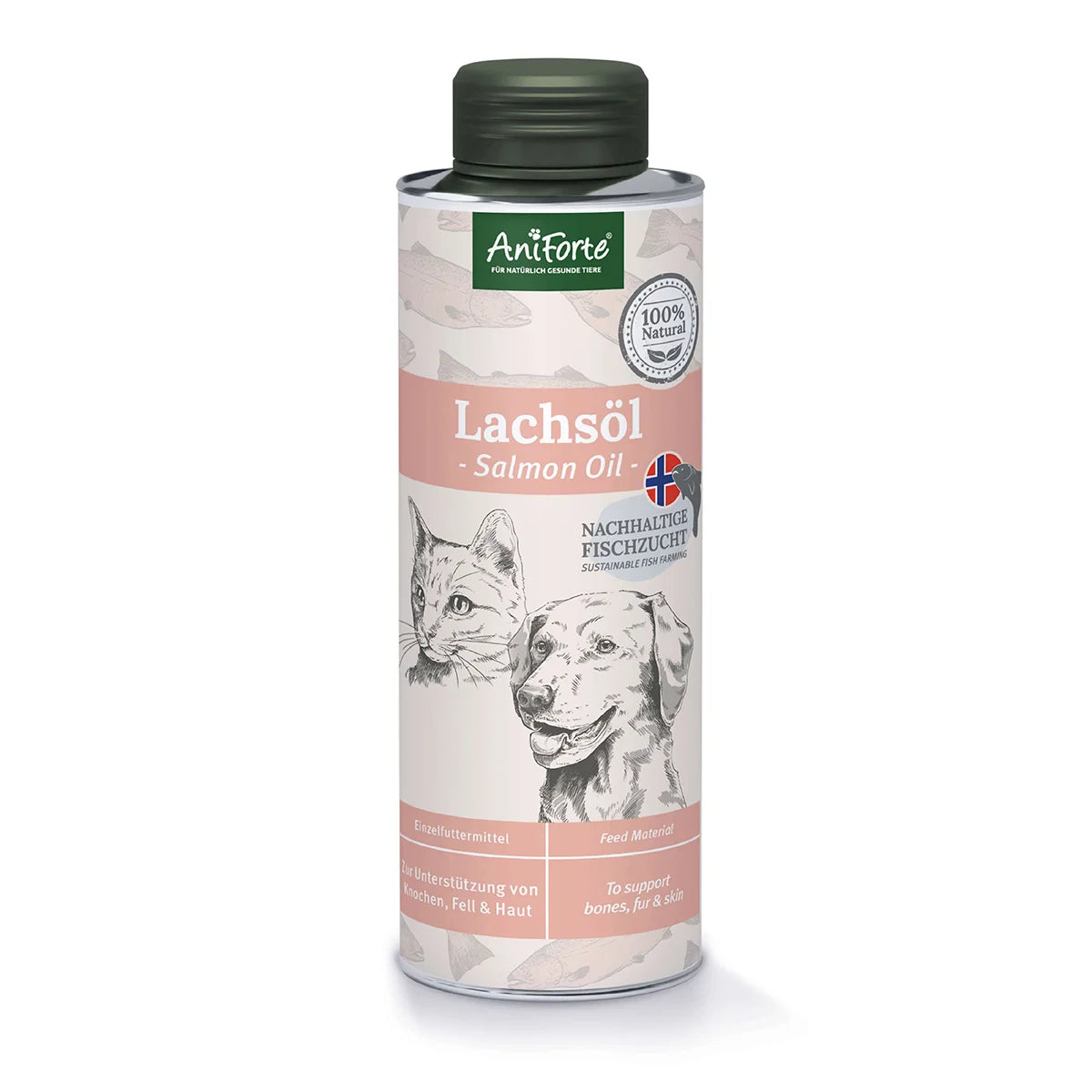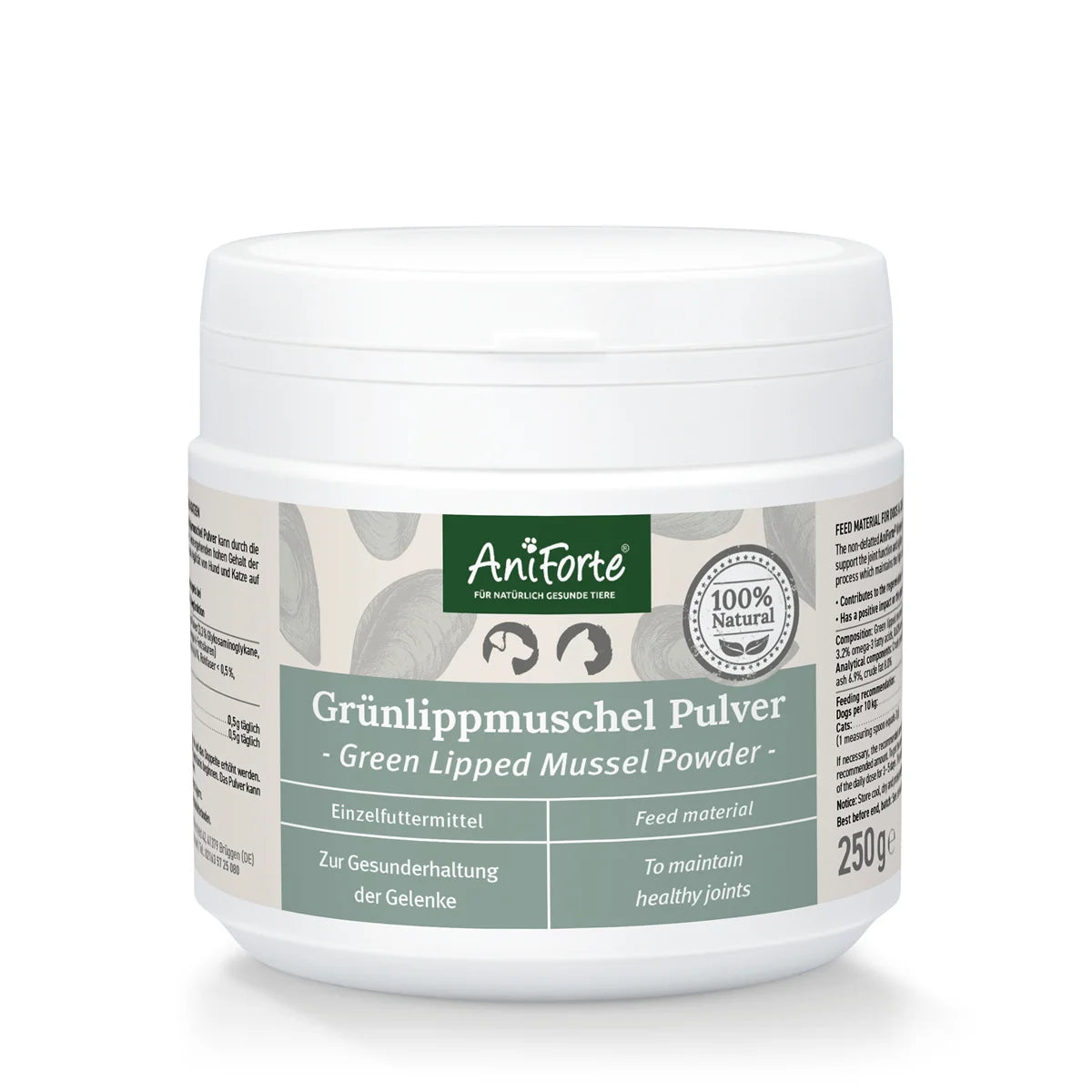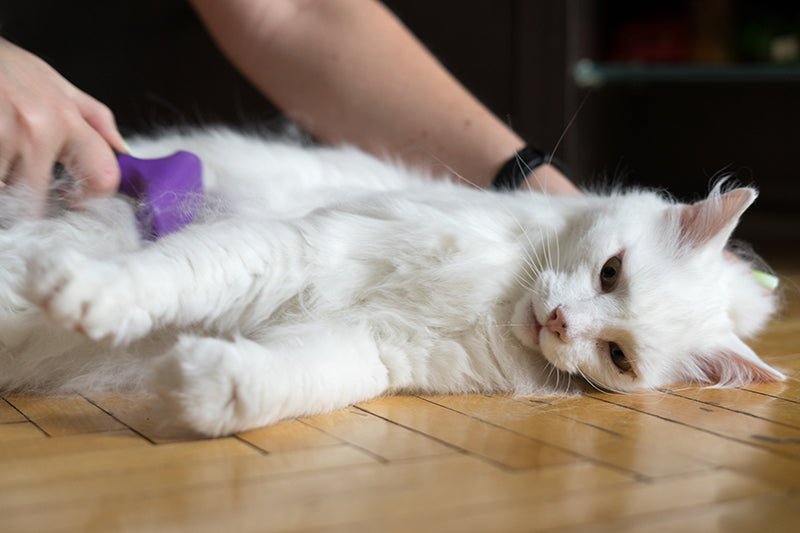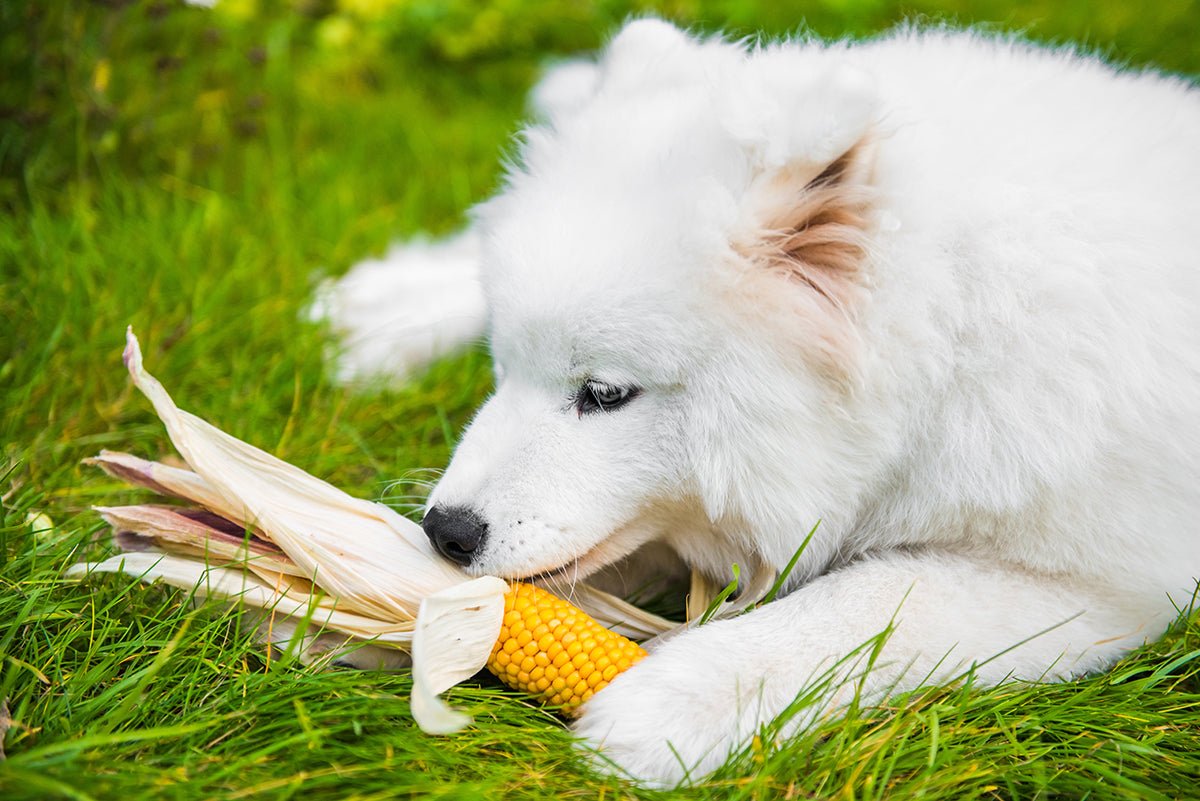
Just like us humans, cats are susceptible to a weakened immune system during the dark winter months. Today we explain how you can help strengthen your cat’s immune system during the cold season.
What weakens my cat’s immune system?
The cat’s immune system is being challenged every day and is "exposed" to the changing of the seasons. In addition, there are everyday challenges that each cat needs to overcome:
Older cats are usually more susceptible and weaker in their immune defense. For a strong immune system, the body needs well-functioning organs and an optimally working metabolism, because if one “cog” in the body does not run properly, the whole system becomes affected. The aging process leads to a reduced production of antibodies and immune cells - therefore, extra support for older cats is particularly important. Oftentimes, elderly cats are also dealing with the age-typical problems of the musculoskeletal system or with decreased muscle mass.
Irregular weather conditions are stressing the cat’s immune system. During the time of seasonal change, there are often temperature fluctuations, and your cat's body needs a lot of energy to regulate.
Stress is a big strain on energy - especially if it occurs permanently. Often, changed behaviour in the cat can be an indication to you of a stressful situation. Grief, for example, can play a role. Stressful situations also include going to the vet or transporting the cat. New roommates also cause a lot of stress in cats, at least until the fronts have been clarified with each other.
The cat’s weight (both over- and underweight) can affect the cardiovascular system and the entire organism of your cat.
Not enough rest and sleep is another factor. You certainly know first-hand the effects of too little rest as a stress trigger and energy drain. Lack of sleep over a longer period of time can be harmful as the body lacks the time needed to regenerate. But fatigue and low energy can also be symptoms of an already weakened immune system. You know your furry friend best: watch closely whether anything in your cat's behavior has recently changed.
Parasites can permanently deprive their host of nutrients, even leading to malnutrition. In young cats, growth can be inhibited and lead to developmental disorders. Therefore, the immune system works hard to get rid of parasites, and that energy is lacking for other needed functions.
Allergies are an overreaction by the immune system to substances entering from the environment such as pollen, mite feces, nickel or others. When looking for the causes, you should consider that there are other types of hypersensitivity that cause similar symptoms but are not based on an immunological response.
Nutrition plays an important role, because nutrient deficiency can lead to a weakened immune system. Without sufficient care, your cat's organism cannot work properly as it lacks the most important means to do so.
Medications can have a lasting effect on the intestinal flora and thus also have a debilitating effect on the immune system.
Lack of hygiene is also an important issue in a weakened immune system. If the organism is repeatedly confronted with pathogens, bacteria, or fungi, which it has just got rid of, the immune system becomes permanently strained. Therefore, the litter boxes should always be kept clean. However, be careful with cleaners and disinfectants: make sure that your cats tolerate them well. Some ingredients can be harmful to them.
Passive smoking is dangerous for the immune system of your little friends, as the animals often clean themselves. Their cleaning is vital for them, but the pollutants that have settled in the fur are now being absorbed into the body through the tongue.
How can I strengthen my cat’s immune system?
There are three important keys for strengthening your cat's defenses: exercise, rest and nutrition.
First key to a strong immune system: sufficient exercise
Exercise promotes blood circulation, resulting in an increased supply of the body cells. They are supplied with more nutrients, and at the same time waste products are being extracted faster. In addition, regular exercise strengthens the cardiovascular system and thus contributes to a stronger immune system.
Cats who are allowed outdoors are used to wandering around, so creative movement incentives are needed when it's too cold outside for them to do their usual rounds. Get creative. For example, you can give your cat a cardboard box for entertainment. Cats love these “playgrounds” and they are a good way to keep boredom in check. Extra play and cuddling sessions can also contribute to the balance. And finally, new toys, homemade or store bought, can help.
In addition to sufficient exercise, plenty of warmth and rest and a balanced diet, the first natural protective barrier of our four-legged friends is the fur.
Second key to a strong immune system: sufficient rest and warmth
Whether your furry friend is an outdoor or indoor cat: a retreat should be available for regular resting periods, to protect against cold, heat, drafts, and offer a time-out from noise and "action." This is especially important during the holidays with visitors in the house, so that your cat has plenty of time for regeneration and recovery of the cells and doesn’t get more stressed than necessary.
For indoor cats it’s more tricky to provide sufficient exercise. A good way to soak up the power of the sun and increase well-being is a sunny window space. For heat lovers, a nest or hammock near the heater is also ideal.
You can make your cat feel comfortable outdoors even in cold temperatures. Set up a warm place on the property as shelter for when you’re not home. Cats are prone to cooling down quickly. Home-built winter sheds, for example recycled dog houses with cat flaps and styrofoam insulation are very popular, especially if you add some pillows and blankets. The entrance should be kept relatively small so that the heat does not escape too quickly and the space remains nice and cozy. The pillows need to be changed/washed regularly as they eventually get moist and parasites will take up residence in them. If the retreat is in an elevated place, it will provide more warmth and your cat feels safer. If it’s possible to install a cat flap connecting into your warm living area, your furry friend can decide for himself when it gets too cold for him and he prefers to get back inside.
If you are feeding outside, please do not use bowls made of stainless steel or other metals, as the tongue can quickly freeze onto them. If possible, frozen water should be exchanged several times daily and be kept at least two metres away from the food.
Kittens should generally not be left out in the cold as they still lack their undercoat and therefore thermoregulation is less efficient.
Third key to a strong immune system: correct nutrition
An appropriate diet is essential for the health of your cat. Support of natural defence plays a major role in any high-quality cat food. Fresh, clean water is just as important, and cats need to consume lots of fluids. If you are unsure whether you are providing high-quality nutrient coverage, look for nutritional advice and talk with your veterinarian.
You can support your cat's immune system by feeding valuable omega-3 fatty acids, contained for instance in salmon oil. Natural vitamins prove to be particularly valuable for daily care. If you want to do something special for your cat in-between, start an immune booster period. Natural antioxidants, especially vitamins C and E, are especially important for young cats, who are exploring the "outside world" for the first time. If you are not sure what supplement is right for your cat's particular situation, please email us at hello@ aniforte.co.uk - our team of nutritionists and vets is here to help!
One part of the immune system is present from birth, the other part develops over the course of life. In kittens the immune system is not yet mature and is only developed through contact with antigens.
A large part of your cat's immune system is located in the intestines, so specialised support is helpful to keep your animal fit. Here, prebiotics are conducive to stimulating the growth of beneficial gut bacteria and their activity. Whether prebiotics or probiotics, each kind influences the intestinal flora in its own way. Discuss with your veterinarian which application is most appropriate for your cat.
Here is to good health for your cats during the cold season, and many cosy days full of cuddles and play!

